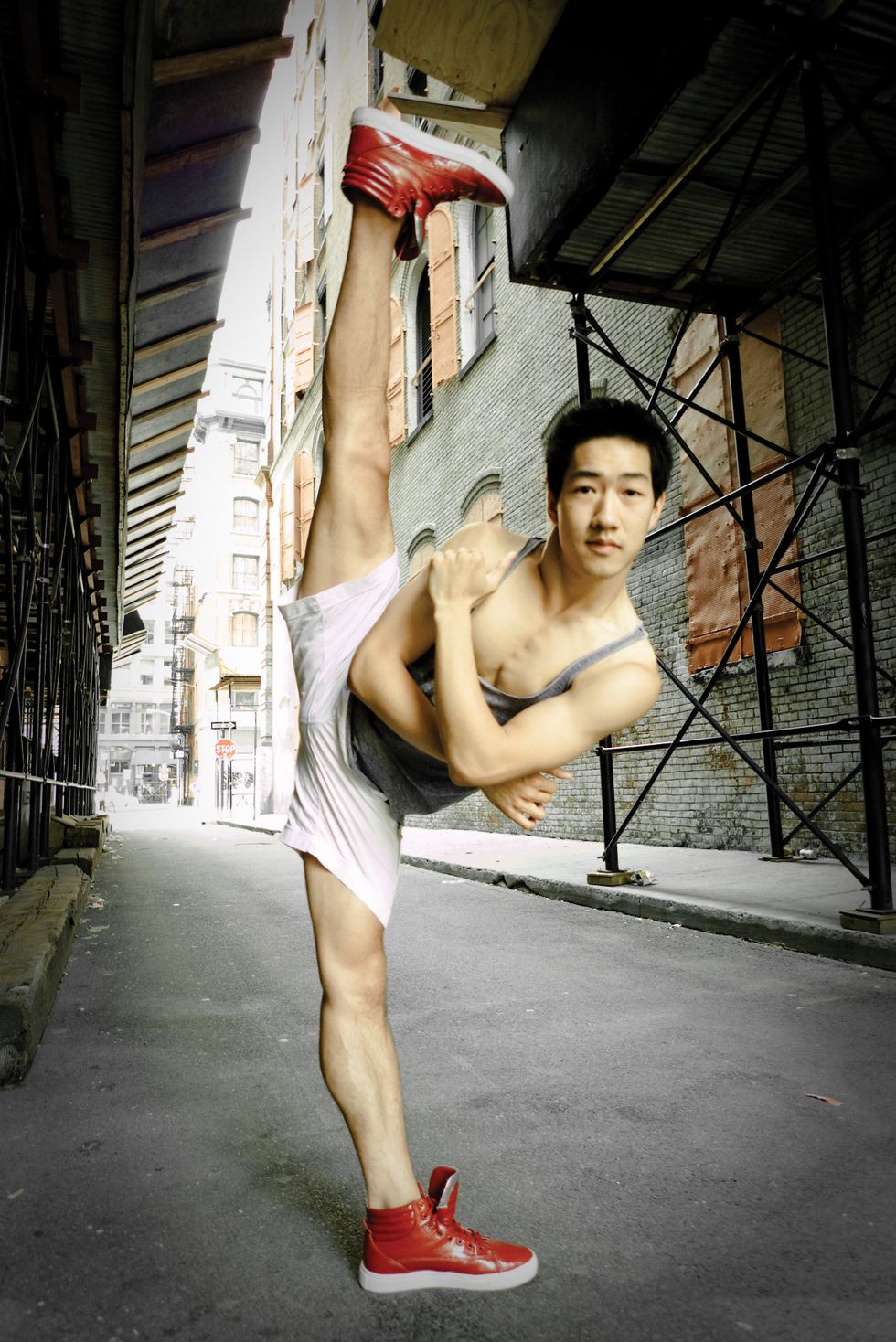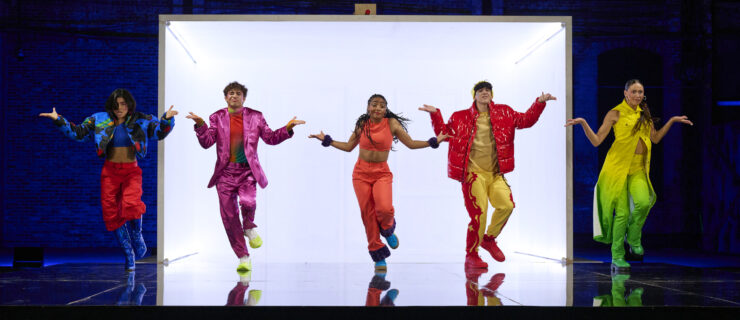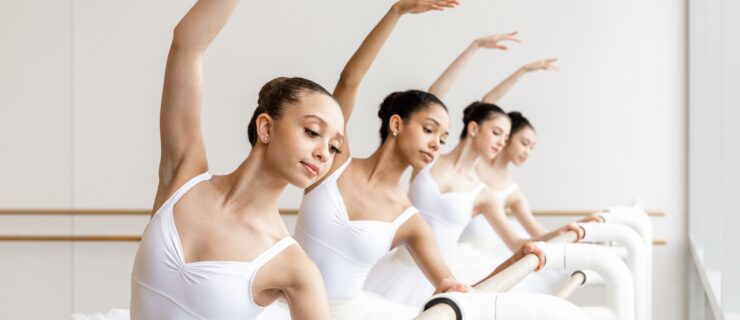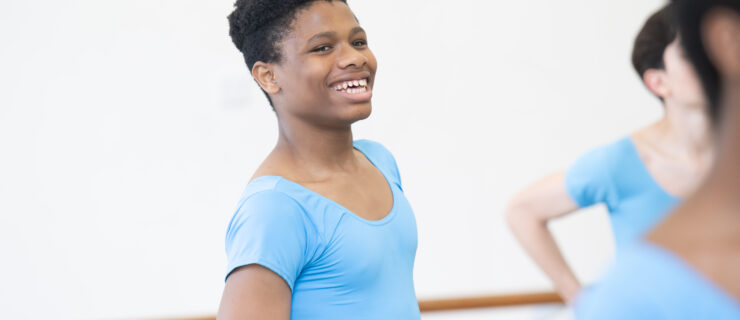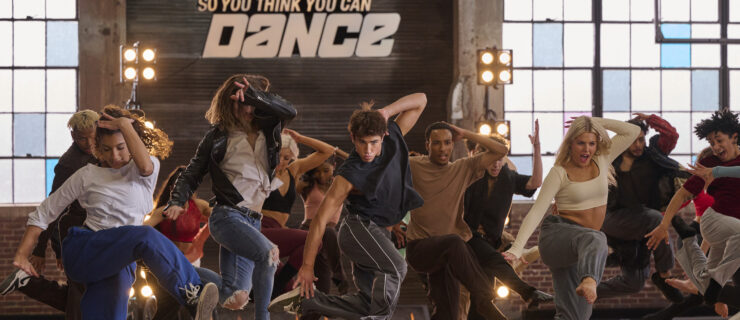Dance Idols Divulge
December 16, 2010
No dancer is perfect. Maybe you’re more flexible on your right side than on your left, or perhaps you just can’t seem to nail all four sounds in your double pullbacks. Don’t despair—even the pros have weaknesses and off days. The key is finding new tactics to help you continue to improve. We got 16 of the most talented people we know to dish about exactly what you need to do—from daily tricks to life lessons—to become the best dancer you can be.
Alex Wong
- As dancers, we put our bodies through a lot of stress, so it’s important to get enough sleep. Your body needs to replenish and recharge itself. When I get enough sleep, my body and mind are rested and are more able to learn new information.
-
Don’t hide under bulky dance clothes.
It’s important for you and your teachers to see what’s going on underneath them. Once your body is warm, ditch the warm-ups and stop covering up. -
Learn what you’re good at and work to make that even better.
Don’t stop when you’ve reached the same level as everyone else. If my feet aren’t good enough, if I’m not flexible enough or if I’m too short, I know that I’d better make up for it with something else!
Desmond Richardson
-
Stay hydrated.
I like Zico coconut water. It replaces your lost electrolytes quicker than regular water and has more potassium than a bunch of bananas! -
Eat well.
Make sure you’re eating enough proteins and lean meats and not eating too much sugar. When my body is at its best, I’m at my best.
Keltie Colleen
-
Watch other dancers.
Instead of staring at yourself in the mirror, take a look around. See what things your peers are doing and copy what you love. You don’t just learn from your teachers—you learn from your classmates, too.
Joey Dowling
-
Learn how to follow directions.
You can get a job just by listening to a director in an audition and simply doing what he or she asks you to do. -
Be realistic about what you look like, how you eat and how much you exercise.
If you want to get into a ballet company, the reality is that you need the right body type. As you grow up, your body will go through changes and you may not even notice. Put in the work to stay in shape. You don’t want to get cut at auditions because of your body. - Be different!
Gillian Murphy
-
Be intellectually curious.
Read, go to museums and attend live performances as often as you can. These experiences will expand your imagination and thereby your artistic taste and dimension as an individual and dancer.
Heather Morris
-
Figure out what makes you happy when you’re performing.
Then keep doing it. -
Perform—whether it’s singing, acting or dancing—as much as you possibly can
, wherever you can, so you can get over your nerves. You don’t want to be shocked or nervous when you’re called upon to perform.
Ida Saki
-
Try cross-training.
As dancers it often feels like we have no time to do anything extra, but participating in different activities has done wonders for my dancing. -
It’s OK to step down a level in order to go back to basics.
If you notice you’re not turning out your leg all the way, don’t be afraid to lower it in order to strengthen your turnout. -
Create scenarios in your mind as you’re dancing.
What are you moving through? Pudding? Water? Sand? What are you surrounded by? Thinking these things through will give your dancing more depth.
John Jasperse
-
Respect your body’s pain.
I see young dancers who feel like they have to push through their pain. Don’t mistreat your body—this career requires longevity. In a funny way, injury is your best teacher because it’s your body’s way of telling you something is wrong. Pay attention to your injury instead of getting angry about it. Learn what you’re doing wrong to your body so that you can prevent it in the future.
Tiler Peck
-
Strengthen your core muscles
so you’re able to engage your legs for fast footwork while keeping your upper body free and lyrical. -
You don’t want your pointe shoes to be louder than the music.
I bang the bottom of my shoes before every show so when I jump, the shoe is softer and doesn’t make as much noise. -
Find certain moments in the choreography to flourish in.
You can’t dance a ballet at the same energy level throughout the whole piece or you’ll get tired. Find moments that you can put all your energy into to highlight the steps.
Chelsie Hightower
-
Keep nutrition bars in your dance bag.
Lärabars are my favorite. -
Be a good person.
Choreographers may hire people based on their talent, but they re-hire them because of the type of person they are. There are thousands of talented dancers out there—it’s who you are that makes you stand out.
Jeanine Mason
-
Introduce new types of exercise to your routine.
Yoga and Pilates have helped correct injuries and alignment issues I’ve had with my body. -
Be ambidextrous.
If you’re only exercising one side of your body, your muscles will build unevenly. -
Make your own trail mix.
Raisins and almonds are great sources of energy. I also include M&Ms!
Brenda Bufalino
-
Put your whole self into practicing.
Work on the rudiments of technique, but don’t practice mechanically. -
Learn a variety of time steps.
It will help you choreograph and compose in different time signatures and improve your improvisation.
Andy Blankenbuehler
-
The best tips for becoming a great dancer might be things you don’t learn in the studio.
Watch people’s body language on the street. Watch how fearless children are. Watch how people interact. Those are the kinds of real life things that we should aspire to capture in our dancing. -
Learn about music.
Know the difference between a quarter note and a sixteenth note, and know what a crescendo is. Learn the terminology and then see how it applies to your dancing. Music is your roadmap. - Real life is about many different emotions—frustration, relief, impatience, joy. Strive to show all of these in your dancing. Don’t just dance performances about angst and anger. That’s limiting and unoriginal. Audiences are moved by new interpretations of things they recognize from their own lives. To be great dancers and great performers, we need to be great analysts of life.
Debbie Allen
-
Dancing isn’t a hobby, it’s a way of life.
Being a dancer defines how you spend your time and your money. To dance is to be disciplined.
Julie Kent
-
Don’t skimp on meals.
Develop good eating habits now and they will last you your whole life. - The most interesting part of your dancing is you! You need technique in order to express yourself, but it is not the end goal. Use your own personality in your dancing, and it will be more rewarding for you and more enjoyable for everyone to watch.
Misha Gabriel
-
Develop good networking skills.
Some choreographers don’t like to hold auditions, so make a point of getting to know choreographers by taking their classes. You’ll create long-lasting professional relationships. -
Stay aware of the quality of your dancing.
Don’t get wrapped up in booking jobs and building your resumé—you have to keep training, taking class and building your dance skills.
